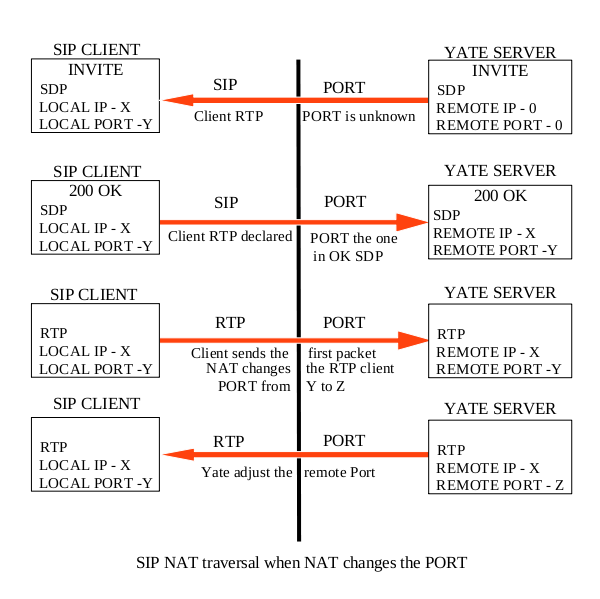SIP NAT
From Yate Documentation
(Difference between revisions)
| Line 1: | Line 1: | ||
In order to solve the common problems with lossing voice when passing through NAT, YATE uses the RTP stream's IP+Port instead of the RTP IP+Port declared in SDP in the ''200 OK'' response. This small hack allows most of the SIP CLIENTS when Yate is the SERVER to pass the voice over NAT. | In order to solve the common problems with lossing voice when passing through NAT, YATE uses the RTP stream's IP+Port instead of the RTP IP+Port declared in SDP in the ''200 OK'' response. This small hack allows most of the SIP CLIENTS when Yate is the SERVER to pass the voice over NAT. | ||
| + | |||
| + | A better explanation can be found at: http://freshmeat.net/articles/view/2079/ | ||
[[File:SIP_NAT.png]] | [[File:SIP_NAT.png]] | ||
| − | + | '''See also''' | |
| + | [http://freshmeat.net/articles/view/2079/ NAT traversal for the SIP protocol] | ||
| + | [[http://docs.yate.ro/wiki/SIP_in_Yate#SIP_with_NAT_in_Yate]] | ||
Revision as of 16:40, 12 November 2012
In order to solve the common problems with lossing voice when passing through NAT, YATE uses the RTP stream's IP+Port instead of the RTP IP+Port declared in SDP in the 200 OK response. This small hack allows most of the SIP CLIENTS when Yate is the SERVER to pass the voice over NAT.
A better explanation can be found at: http://freshmeat.net/articles/view/2079/
See also NAT traversal for the SIP protocol [[1]]
